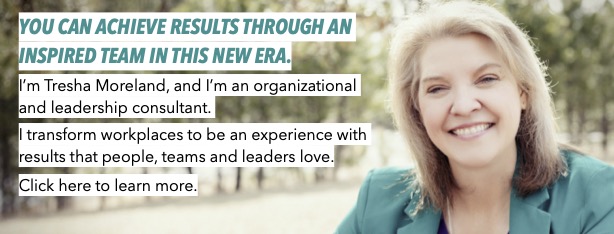The construction industry in the Black Hills area, known for its picturesque landscapes and rugged terrain, is facing a unique challenge in today's post-pandemic world: finding skilled talent. The demand for construction services is high, but the talent pool seems to be shrinking, especially for specialized roles. As remote work becomes more prevalent and younger generations seek different career paths, construction companies need to get creative and strategic in attracting and retaining skilled workers.
So, how can construction companies in the Black Hills area find and keep the talent they need to build the future?
1. Understanding the Talent Gap: What’s Causing It?
Before diving into solutions, it's essential to understand the root causes of the talent shortage in construction:
Aging Workforce: The construction industry has a significant number of workers nearing retirement. The younger generation is not entering the field at the same rate, creating a gap.
Changing Career Preferences: Many young people today are more inclined towards tech-driven and remote jobs rather than manual, on-site work.
Remote Work Influence: The rise of remote work has made many industries more attractive compared to construction, where physical presence is often necessary.
Perception Problem: There is often a stigma that construction jobs are low-paying, labor-intensive, and lack career growth, even though this is far from the truth.
2. Embrace Modern Recruitment Strategies
Construction companies must modernize their recruitment strategies to attract skilled workers. Here’s how:
Leverage Social Media: Gone are the days of solely relying on job boards or newspaper ads. Use social media platforms like Facebook, LinkedIn, and Instagram to showcase your company culture, projects, and employee testimonials. Highlighting the benefits of working in construction—like job security, the opportunity for hands-on work, and a sense of accomplishment—can attract younger talent.
Develop a Strong Employer Brand: Make your company a place where people want to work. This involves not just competitive salaries, but also a positive work environment, opportunities for growth, and a culture that values and respects its employees.
Utilize Digital Platforms for Recruitment: Platforms like Indeed, Glassdoor, and ZipRecruiter have extensive reach and can help you target specific skills and experience levels. These platforms can filter candidates based on their experience, certifications, and other criteria, making the search more efficient.
3. Local Talent Development: Grow Your Own
Another strategy is to develop talent from within the local community:
Partner with Local Educational Institutions: Collaborate with local high schools, community colleges, and vocational schools to create awareness about the opportunities in the construction field. Offering internships, apprenticeships, and co-op programs can help students gain hands-on experience while you build a pipeline of future talent.
Scholarship Programs and Sponsorships: Offer scholarships or sponsorship programs for students who want to pursue careers in construction. This not only supports education but also builds a loyalty base. When students graduate, they’re more likely to join a company that invested in their future.
Offer On-the-Job Training: Construction is a field where skills can often be learned on the job. Implementing robust training programs can help fill skill gaps by upskilling current employees or training new hires who may not have traditional construction backgrounds.
4. Attracting Remote and Relocatable Talent
While many construction jobs require on-site presence, some roles—like project management, design, and estimation—can be done remotely. Consider these approaches:
Flexible Work Options: For roles that can be remote, offer flexible work arrangements. This could mean allowing project managers to work from home a few days a week or having remote designers collaborate with on-site teams.
Attractive Relocation Packages: For roles that need to be on-site, offering attractive relocation packages can entice skilled workers from other regions. Highlight the unique benefits of living in the Black Hills—like outdoor recreation, a close-knit community, and a lower cost of living.
Tap into the Gig Economy: More professionals are freelancing or working as independent contractors. Use platforms like Upwork or Freelancer to find skilled workers for short-term projects or specialized tasks.
5. Creating a Competitive Advantage with Benefits and Work Culture
Compensation is always a factor, but it's not the only one. Companies that offer comprehensive benefits and cultivate a positive work culture have a competitive edge.
Comprehensive Benefits Packages: Beyond competitive wages, offering benefits like health insurance, retirement plans, paid time off, and even childcare support can set you apart from competitors.
Invest in Employee Well-being: The construction industry can be physically demanding, and employee well-being should be a priority. Providing wellness programs, mental health resources, and ergonomic tools can show your workforce that you care about their health and safety.
Foster a Sense of Purpose and Teamwork: The construction industry often provides a tangible sense of accomplishment. Foster a culture where teamwork, craftsmanship, and pride in building something that lasts are valued and recognized.
6. Emphasize Safety and Stability in a Post-Pandemic World
The COVID-19 pandemic has heightened everyone’s focus on safety, especially in hands-on industries like construction.
Highlight Health and Safety Protocols: Make sure potential employees know that your company prioritizes safety. Clearly communicate your health and safety protocols, including any measures you’ve implemented in response to COVID-19 and other potential risks.
Job Stability and Growth Opportunities: In uncertain economic times, job stability becomes a major factor for candidates. Emphasize the stability of the construction industry and the growth potential within your company.
7. Utilize Community Connections and Local Networks
In a tight-knit area like the Black Hills, community connections can make a big difference.
Leverage Word-of-Mouth Recruitment: Encourage your current employees to refer friends or family members. Offer referral bonuses to incentivize this further.
Engage with Local Community Groups and Events: Sponsorships, community events, and local charity work can increase your company’s visibility and reputation. The more you are seen as a community-oriented company, the more likely locals will consider working for you.
Collaborate with Local Chambers of Commerce and Economic Development Groups: These organizations often have resources and programs to help local businesses find talent. They can also provide valuable networking opportunities.
8. Address the Skills Gap with Innovative Solutions
When skilled labor is hard to come by, sometimes you have to create it.
Invest in Technology and Modern Tools: Today's younger workforce is tech-savvy. Use modern tools and technology to make construction work more efficient and appealing. Drone technology, augmented reality (AR), and Building Information Modeling (BIM) are some innovations that can attract younger talent.
Promote Skill-Building and Career Progression: Ensure that potential candidates see construction as not just a job but a career. Offer clear pathways for advancement and continuous learning opportunities.
Wrapping it up
Finding skilled talent in the Black Hills area for the construction industry is a challenge, but not an insurmountable one. By embracing modern recruitment strategies, investing in local talent development, creating an appealing work culture, and utilizing community connections, construction companies can attract and retain the skilled workers they need to thrive. The key is to think creatively, leverage both local and remote opportunities, and focus on building a workplace that people want to be a part of.

Latest posts by Tresha Moreland (see all)
- Building the Future: How Rural Area Construction Companies Can Find Skilled Talent - September 7, 2024
- Decoding Digital Dialogue: When to Text, Chat, Email, Call, or Video Meet for Maximum Impact - September 6, 2024
- Building a Resilient HR Strategy: How to Lead Through Uncertain Times - September 5, 2024











